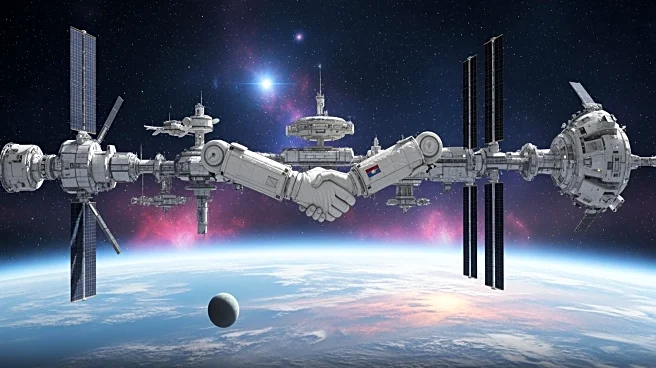What's Happening?
An opinion piece advocates for increased cooperation between the U.S. and China in civil space exploration, drawing parallels to historical efforts by President John F. Kennedy to collaborate with the Soviet
Union. The article highlights the potential benefits of joint space missions, such as mutual astronaut rescue and shared scientific agreements, amid growing tensions and competition in space. The current lack of dialogue between the two nations is seen as a missed opportunity for diplomacy and collaboration in space exploration.
Why It's Important?
Cooperation between major space powers like the U.S. and China could lead to significant advancements in space exploration and reduce the risk of conflict in space. Collaborative efforts could enhance scientific research, improve safety protocols, and foster international goodwill. The article suggests that space diplomacy could serve as a powerful symbol of shared humanity, potentially easing terrestrial tensions and promoting peace.
What's Next?
The article calls for a bilateral initiative sponsored at the presidential level to explore possibilities for collaboration in space exploration. Such efforts could lead to new agreements on space traffic management, lunar exploration, and planetary science. The potential for cooperation could also influence policy decisions and legislative actions in both countries, shaping the future of international space relations.
Beyond the Headlines
The ethical and strategic dimensions of space cooperation are complex, involving considerations of national security, technological sharing, and geopolitical influence. The potential for collaboration raises questions about the balance between competition and cooperation in space, and how these dynamics could impact global power structures.










